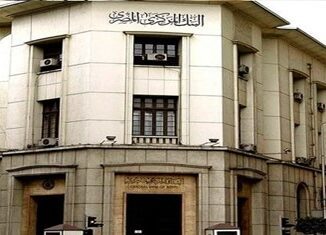
Egyptian civil servants have warned the government that increases in their salaries will not help them avoid the devastating impact of tough new austerity measures.
Earlier this month the national Parliament approved a draft law giving state employees a 7 percent raise in their basic earnings and an additional irregular bonus of 10 percent.
Civil servants said that despite pay raise, the huge rises in the prices of essential commodities including fuel, electricity, piped drinking water, and public transport will still leave them struggling to make ends meet.
One 45-year-old who works at a government notary office in Cairo and requested anonymity said, “It’s better than nothing but definitely still not enough. It can help alleviate the effects of just one item out of the many items of which the state has decided to increase the cost.”
“For example, I can now bear the additional costs of drinking water but what about electricity, what about transportation, what about everything else?”
The recent austerity measures are part of an economic reform program designed to meet the terms of a three-year $12 billion loan Egypt secured from the International Monetary Fund (IMF) in late 2016.
In recent weeks, the authorities have increased metro fares by up to 250 percent and the price of cooking gas from 60 Egyptian pounds to 100 Egyptian pounds ($3.3 to $5.6) per cylinder. The cost of piped drinking water has risen by up to 45 percent and electricity by 26 percent. Gasoline prices have risen by an average of about 34 percent.
Abdel-Rahman, a government employee who refused to give his full name, said, “I earn 1,200 pounds and I have three children. The salary increases they usually announce every year barely make any difference.
“My salary needs to be at least doubled if I’m to survive such dire economic conditions. Life has become too hard and the few pounds they throw at us every year are almost useless.”
In fact, some economists worry that recent austerity measures, which have angered Egyptians, could also spark unexpectedly high inflation, that would crimp consumption, put off a quick recovery and deter potential investors.
Mohamed Abu Basha, head of macroeconomic analysis at Cairo-based investment bank EFG Hermes, said too many reforms at once might fail to quickly revive the ailing economy.
“Typically in fiscal consolidation, the risk is that you enter a period of stagnation,” Abu Basha said. “You do a lot of reforms but they weigh too much on the economy’s capacity to grow.”
Yesterday, one of the top-trending Arabic Twitter hashtags for Egypt was “Sisi must go” (irhal ya Sisi) with more than 86,000 tweets.
“No investor will come to Egypt,” Farahat said, “if there is a risk of over-spending or over-borrowing, which risk pressure for devaluation of the currency and an outflow of capital.”
Inflation shot up to a high of 35 percent after the austerity measures that accompanied the November 2016 IMF pact. These included a rise in fuel prices, a 13 percent value-added tax and a devaluation that cut the Egyptian pound value by half.
“A risk is that the second-round inflation effect is higher and longer lasting this time than last because companies need to get some margin back, which would put consumption, interest rate cuts and investment recovery in doubt,” said an economist based outside of Egypt who wished to remain anonymous.



